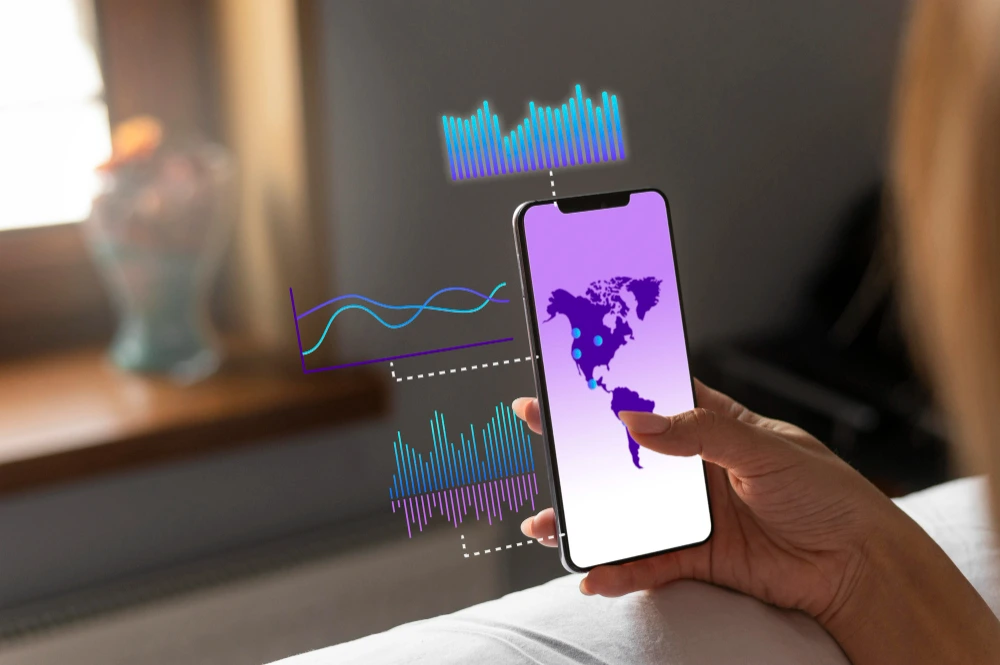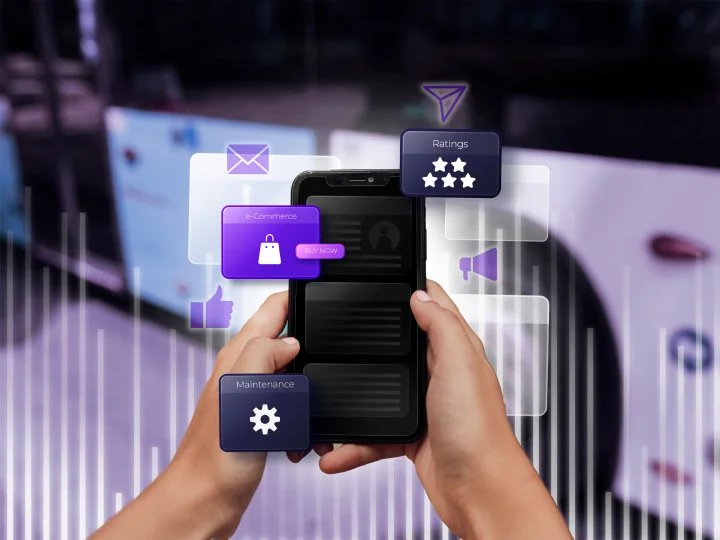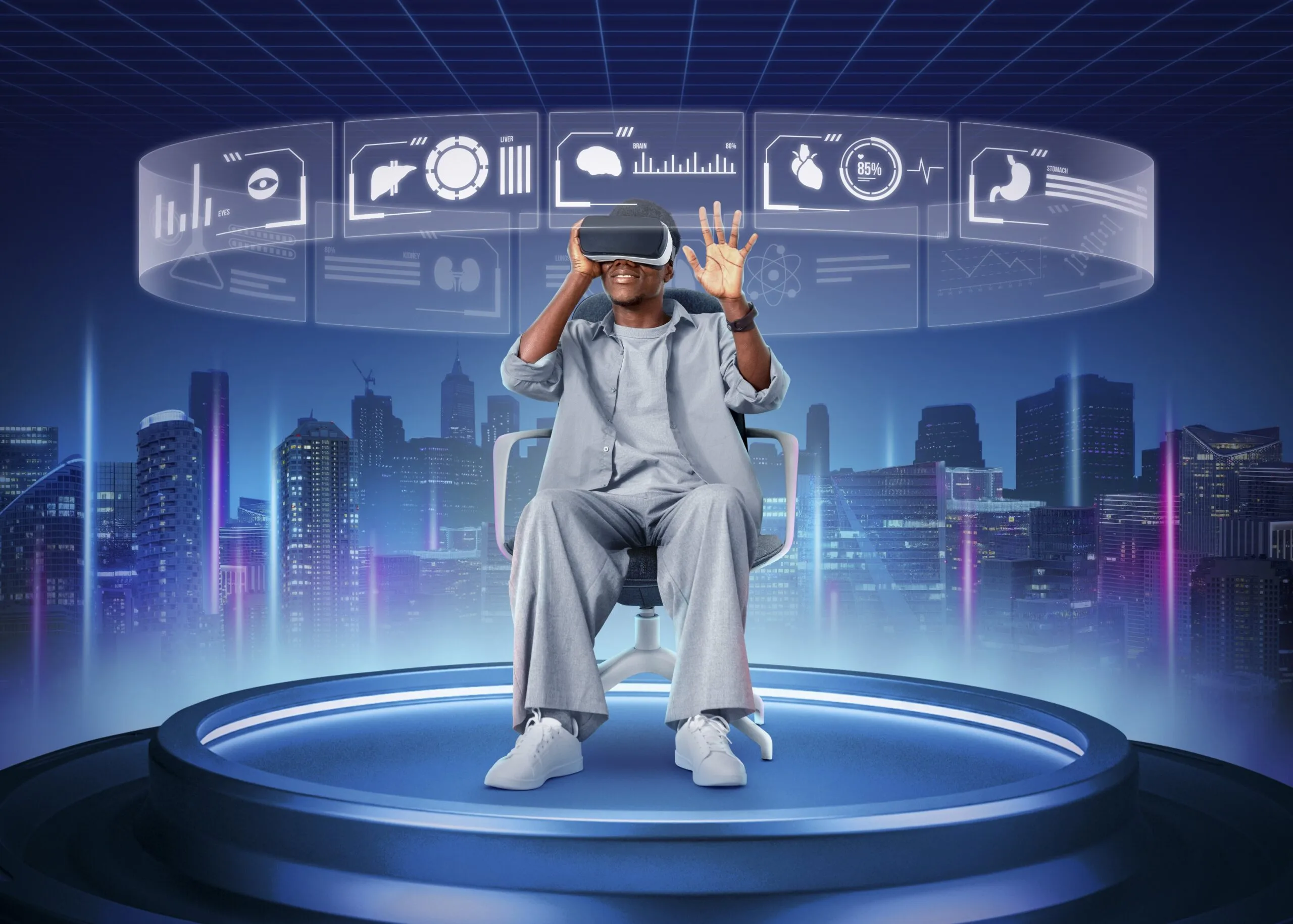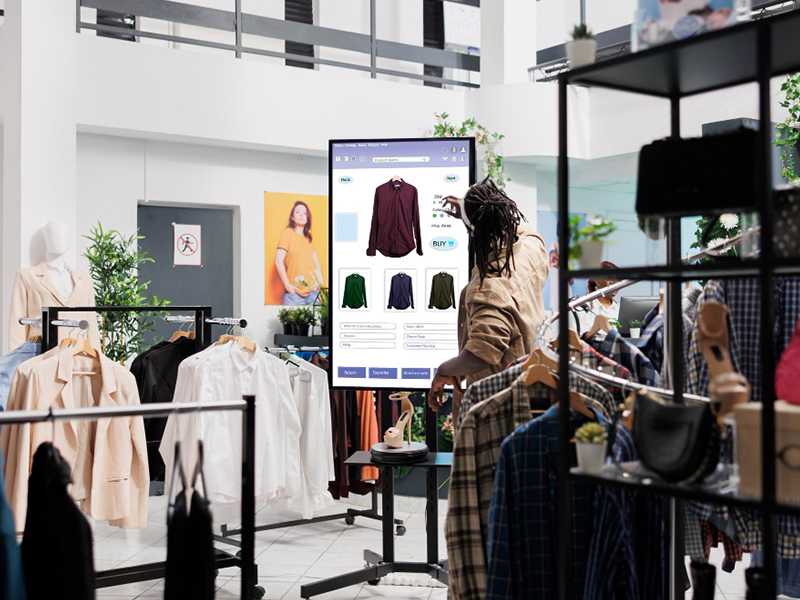
Augmented reality (AR) is a game-changing technology that has revolutionized how consumers interact with products and brands in today’s rapidly changing retail environment.
In augmented reality technology, digital features are superimposed over the physical view of a person, thus creating a composite image. This helps reduce the difference between in-person and online shopping. With AR tools’ help, customers can “try on” products virtually to make purchase decisions quickly.
We at axiusSoftware are a dedicated augmented reality development company, researching and developing AR tools that have the potential to help the retail industry and others alike. Inthis blog, we will examine augmented reality’s advantages and fascinating use cases in the retail sector.
Let’s Dive Right Into the Details!
Benefits of Augmented Reality
The main advantage of augmented reality technology is its ability to transform the retail experience from the user’s perspective. It can also improve customer interaction and offer personalized experiences in retail, such as virtual try-on.
Here are some of the ways augmented reality technology is helping shape the retail industry
1. Try Before You Buy
Customers can digitally “try before they buy” by using virtual try-ons and product visualizations enabled by AR. This allows them to see how products will look on them or whether they will fit them as desired.
2. AR Powered Demonstrations
Customers are provided with interactive product demonstrations and tutorials, equipping them to make wise purchasing decisions. In addition, it can guide customers on what suits them and how they should style their products.
3. Lower Product Returns
Augmented reality technology results in lower product returns and higher conversion rates. Customers can find the ideal fit using AR-assisted sizing and fitting solutions, taking the guesswork out of online buying.
4. Increased Brand Loyalty
Through AR, brands can develop distinctive and engaging shopping experiences that set them apart from rivals. In addition, retailers can increase customer engagement and promote brand loyalty by using augmented reality in loyalty programs and marketing efforts.
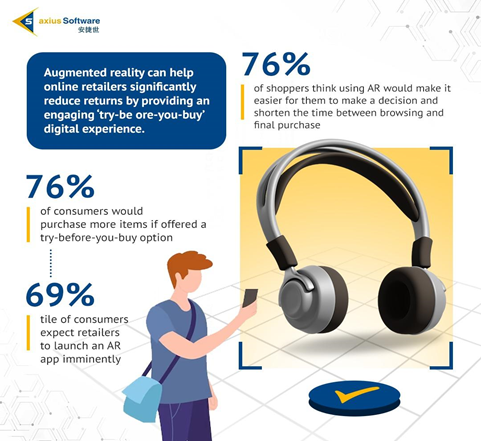
Use Cases of Augmented Reality in Retail
There are several interesting uses for augmented reality in the retail industry. Virtual showrooms, for instance, have grown in popularity across numerous sectors.
Retailers of furniture and home goods use AR to let buyers virtually arrange furniture in their homes so they can see how it will appear before making a purchase.
Similarly, stores that sell clothing and cosmetics use augmented reality technology to let customers virtually try on items or experiment with various makeup looks, creating an engaging and dynamic shopping experience.
A Look into AR Success Stories
Store Mapping – AR is a valuable tool for in-store navigation. Customers can easily navigate prominent retail locations with the help of augmented reality wayfinding and store mapping. This helps speed up their shopping trips.
Product Recommendations – Retailers use augmented reality technologies to provide customers with personalized product recommendations based on their interests and past purchases, improving the shopping experience.
Informed Decision-Making – Incorporating AR-powered product information and narrative in retail is another enticing application of augmented reality. Customers can get precise information from virtual product labels and specs, empowering them to make informed decisions.
AR already offers advanced solutions in retail, but with the constant development of this technology, it is expected to improve further.
Challenges and Future Outlook
Retailers must make infrastructural investments in AR and guarantee it integrates seamlessly with current platforms.
Being an AR – VR development company, we at axiusSoftware, are always looking to integrate other cutting-edge technologies like artificial intelligence (AI) and the Internet of Things (IoT) into AR-powered retail solutions.
The potential for augmented reality in retail will be even brighter. We anticipate a rise in usage as this technology becomes widely available and more reasonably priced across different retail sectors.
Augmented Reality Technologies & Retail: To Be Continued
Thanks to augmented reality, a new era of retail and shopping experiences has arrived. It is a helpful tool for merchants due to its advantages, which include higher brand loyalty, increased conversion rates, and increased customer interaction.
Use cases like virtual showrooms, in-store navigation, and AR-powered product information demonstrate the adaptability of this technology.
We at axiusSoftware are an AR-VR Development Company that helps develop applications and interactive visual solutions for our clients. With the help of our AR application development, we help take end-user engagement to the next level. For more information on our services, visit our website, www.axiussoftware.com, today!






